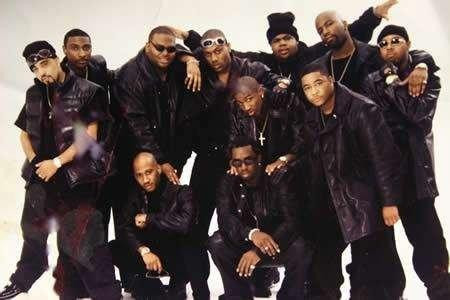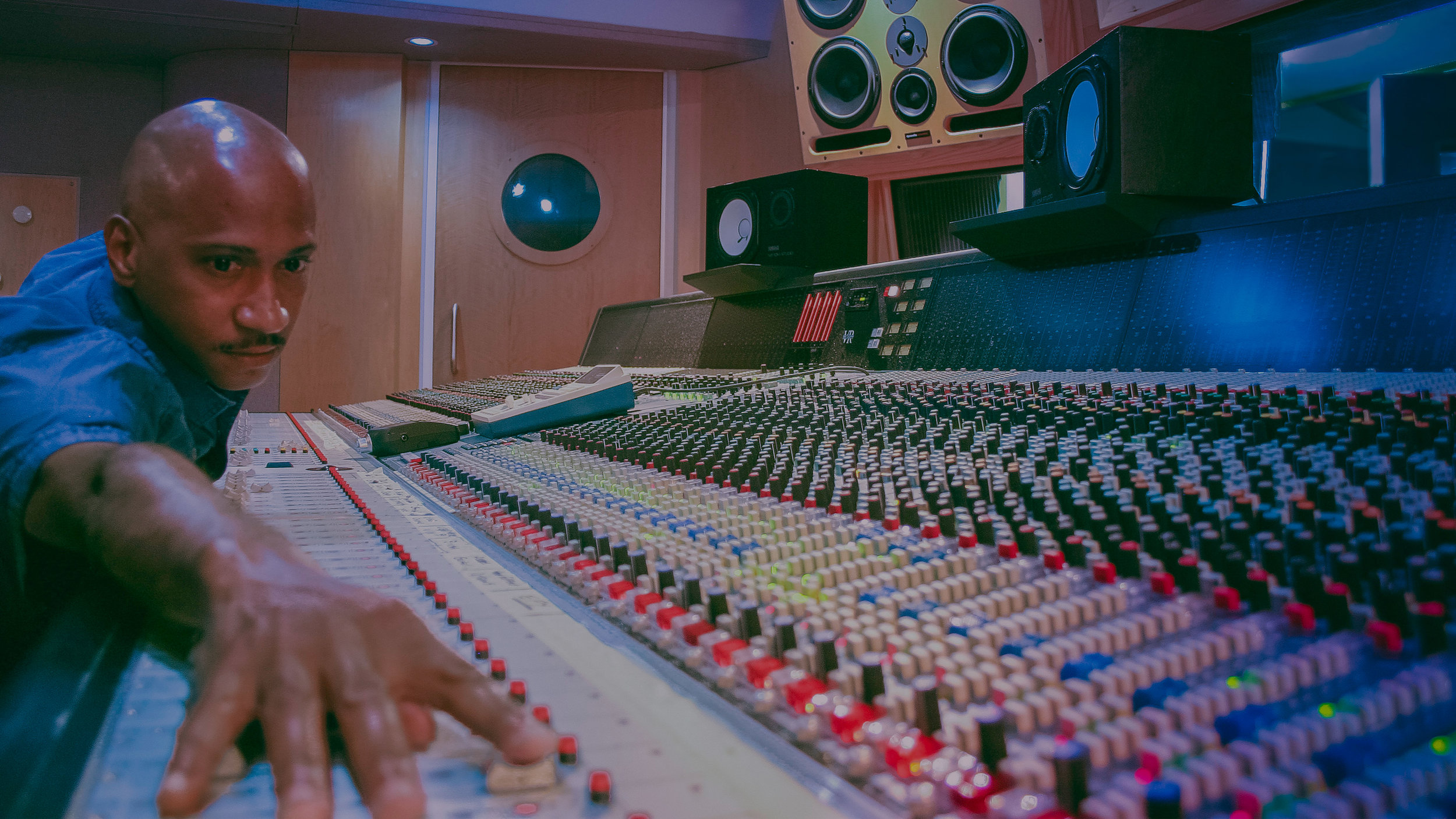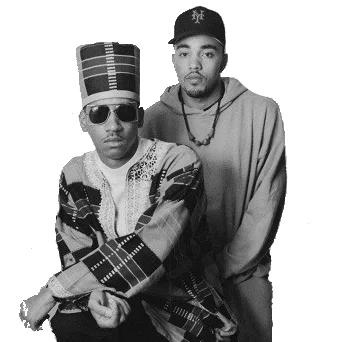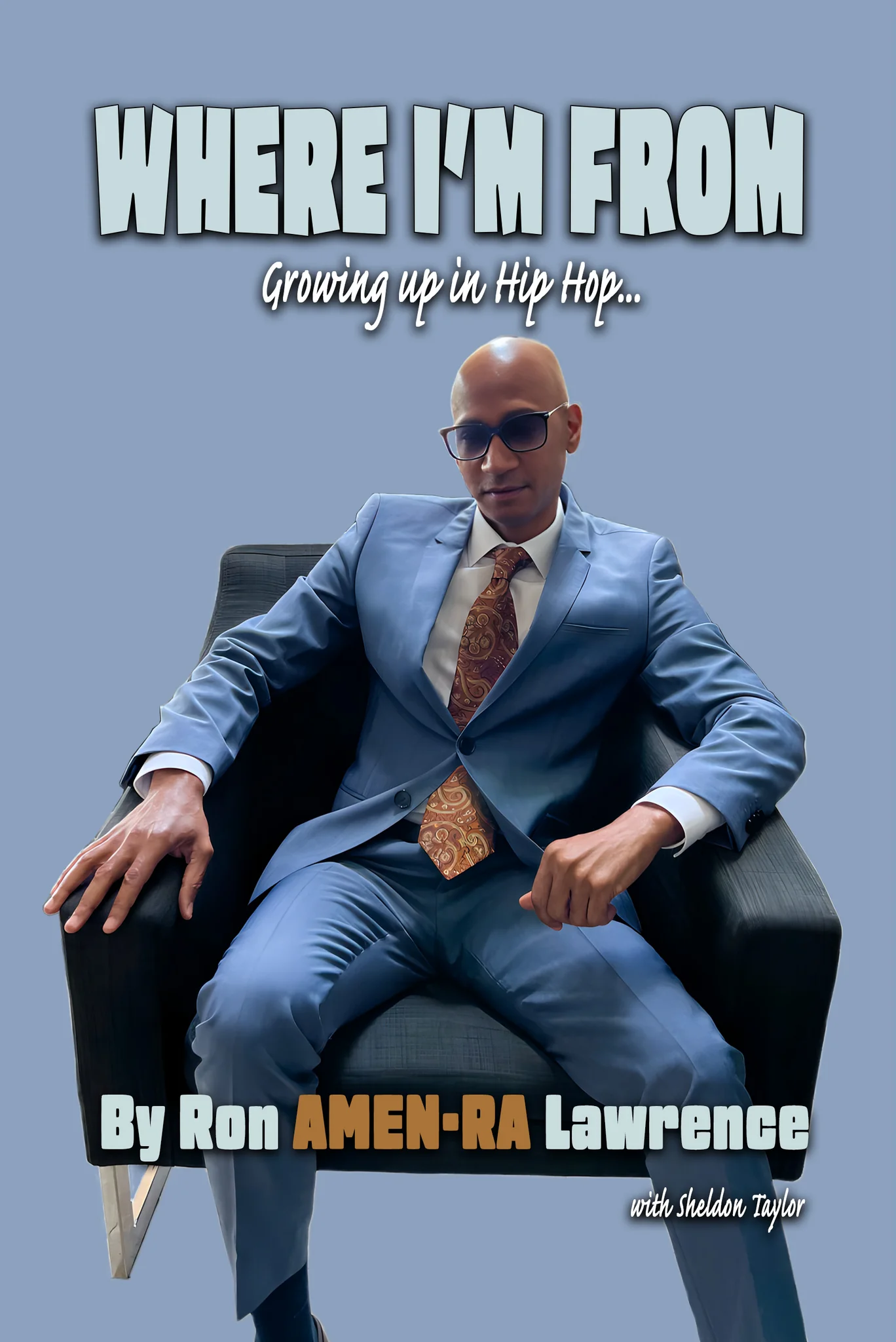Born on the island of Dominica, raised in East Elmhurst, Queens [N.Y.C.], producer-filmmaker Ron “Amen-Ra” Lawrence, most famously known for the singles “Hypnotize” by The (late, great) Notorious B.I.G, Diddy’s “Been Around The World,” Jay-Z’s “Where I’m From,” “Money, Power, Respect” by The Lox, Faith Evans’ Grammy-nominated “Love Like This,” “The Theme (It’s Party Time)” by Tracey Lee and so many more, would go on to attend Howard University after high school graduation. While there, Lawrence met Deric “D-Dot” Angelettie and the two formed early ’90’s rap group, Two Kings in a Cipher. Following the dissolution of TKIAC, the duo opted instead to focus on production, and later joined “The Hitmen” team working for now legally embattled music mogul Sean “Puffy” Combs’ Bad Boy Entertainment imprint. In 2019, Ron Lawrence published his autobiography ‘Where I’m From.’
August 11th, 2023, marked the 50th Anniversary of Hip Hop —What exactly does that mean to and for you?
The 50th Anniversary of Hip Hop is more than just a milestone — it’s a celebration of resilience, creativity, and the cultural force that changed the world. For me, it’s a reflection of where we’ve come from, the innovators who laid the foundation, and the responsibility to continue pushing the genre forward. Hip Hop has been the soundtrack to my life and career, and reaching 50 years is proof of its staying power, evolution, and global impact.
To quote The Notorious B.I.G., “You never thought that Hip Hop would take it this far!”—Was this something that you ever could’ve imagined?
Honestly, back in the day, I don’t think anyone fully grasped just how far Hip Hop would go. We were just kids with a passion, making beats, rhyming, and expressing ourselves in ways that felt real and urgent. Seeing it evolve from block parties and park jams to a multi-billion-dollar industry that influences everything from fashion to politics is surreal. But looking back, I realize the passion and hunger we had — so maybe it was inevitable.
What are some of your fondest, most stand-out moments/memories during your lengthy tenure in Hip Hop?
Man, there are so many, but here are a few:
• Being in the studio with legends — That moment when you create something special, and you just know it’s going to hit.
• Hearing my music on the radio for the first time — That’s a feeling you never forget.
• Watching Hip Hop become mainstream — Seeing artists I worked with perform on major stages, win awards, and break records.
• Collaborating with some of the greatest minds in the game — The energy, the creativity, the magic that happens when you’re in the right room at the right time.
• Seeing younger generations carry the torch — Knowing that I played a part in shaping the culture, and that it’s in good hands moving forward.

What are your future plans and / or goals for the 2025 season?
In 2025, I’m focused on a few key things:
• Expanding my production catalog with fresh sounds and new artists.
• Working on projects that push boundaries, while still respecting the roots of Hip Hop.
• Mentoring up-and-coming producers and artists to help shape the next generation.
• Exploring new ventures beyond music, including tech and business investments.
• Keeping my creativity sharp, and making timeless music.

What exactly do you want people to get from your music?
I want my music to move people — whether it’s making them nod their head, feel something deep, or take them back to a certain place in time. I want my production to be more than just beats; I want it to tell a story, to be felt in the soul. If my music can inspire, uplift, or make someone feel unstoppable, then I’ve done my job.
If you could collaborate with any one artist, living or dead, who would it be and why?
That’s a tough one, but if I had to choose, I’d say Marvin Gaye. His voice, his message, his ability to blend soul and social consciousness — it would be incredible to create something with that kind of depth and emotion. On the Hip Hop side, working with Tupac would have been legendary — his passion, storytelling, and revolutionary spirit were unmatched.
If you could play any venue in the world, which one would you choose and why?
Madison Square Garden. There’s something about performing or having your music played in the Garden — it’s legendary. Every great artist has had their moment there, and it holds a certain energy that can’t be duplicated.
Are you happy with the current state of Hip Hop?
I have mixed feelings. On one hand, Hip Hop has evolved and expanded in ways we never imagined. It’s global, diverse, and continues to influence culture. On the other hand, I feel like some of the essence — the storytelling, originality, and realness — is getting lost in the fast-paced, algorithm-driven industry. But Hip Hop always reinvents itself, and I believe we’ll see a resurgence of more substance-driven music.
What do you feel has and will continue to be the key to your longevity?
Adaptability and authenticity. You have to evolve with the times, while staying true to who you are. I’ve never been afraid to experiment with sound, work with new artists, and learn from the younger generation. At the same time, I’ve always kept my foundation rooted in quality and real artistry.

Do you have any other outside / additional aspirations, maybe even completely away from entertainment?
Absolutely. I’m interested in business, investing in young entrepreneurs, and possibly venturing into film and tech. I also want to give back more, whether through mentorship or community projects that uplift the youth.
What’s an average day like for you? And, how do you interact with and respond to fans?
Every day is different, but it usually involves studio sessions, meetings, and creative brainstorming. I try to stay engaged with fans through social media, interviews, and events. I appreciate the love and support, so whenever I can, I make time to connect.
What is your favorite part about this line of work? Your least favorite? And why?
Favorite: The creative process — hearing an idea come to life and seeing it impact people. Least favorite: The business side can be frustrating. Politics, industry games, and how quickly things can change can sometimes take away from the art.
What advice would you have for someone wanting to follow in your footsteps?
• Master your craft. Don’t just copy what’s hot—create your own lane.
• Stay persistent. This industry is tough, but if you love it, keep pushing.
• Build relationships. It’s not just about talent; it’s about who you know and how you move.
• Be adaptable. Music and technology change — stay ahead of the curve.
• Keep your business tight. Understand contracts, publishing, and ownership.
Looking ahead, say five or maybe even ten years from now, where do you see yourself?
I see myself still creating, but also expanding into other ventures — maybe running a label, investing in future talent, and contributing to the culture in new ways. Legacy is important to me, so I want to leave a lasting impact.
Is there anything I left out or just plain forgot to mention?
I think you covered it all! Maybe just a reminder to everyone that Hip Hop is a living, breathing culture, and it’s up to us to protect and evolve it the right way.

Any “parting” words for our readers?
Keep supporting real music, keep pushing boundaries, and never forget where this culture came from. Hip Hop isn’t just music — it’s a movement, a way of life. Keep it alive, keep it fresh, and never stop creating. Thanks for the questions! Appreciate the love.
Connect w/Ron Lawrence Online:
